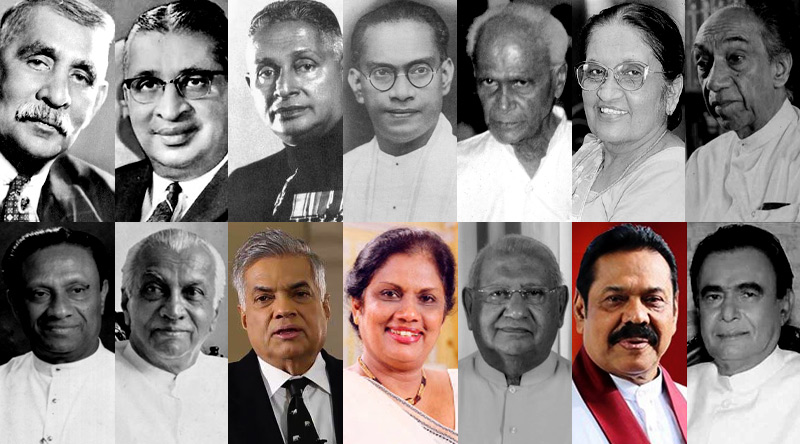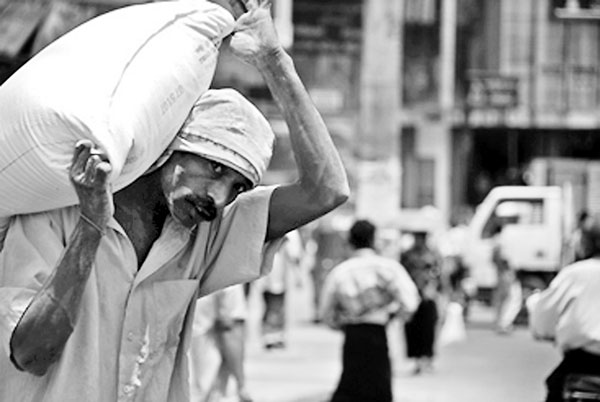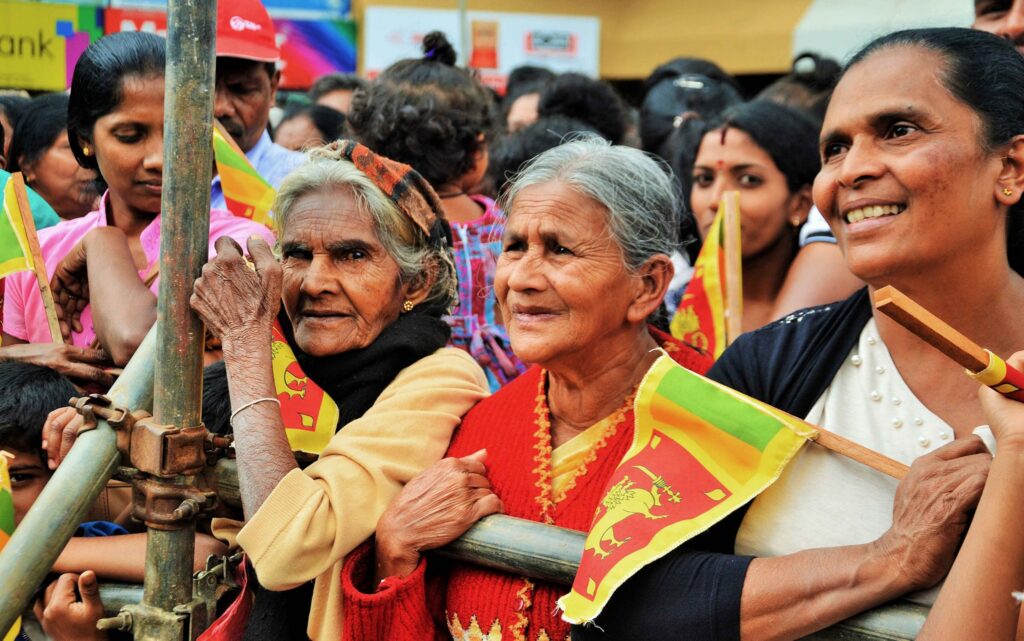Perhaps the most corrosive element in Sri Lanka’s political landscape is the deep-seated corruption and self-serving nature of its political class. The observation that “the main aim of politicians are to earn money as much as they can in their tenure rather than developing the country” is a harsh but often undeniable truth
The immediate gratification mindset prevalent among a significant portion of the population is also a major impediment. The observation that “the majority are happy with day to day earnings and don’t want think ahead” points to a short-term orientation that is antithetical to long-term national development

Sri Lanka, an island nation blessed with abundant natural beauty and a strategically vital location, has, for over 77 years since gaining independence, remained entrenched in the category of a developing country. While the global landscape has dramatically transformed, pushing many of its post-colonial peers towards prosperity, Sri Lanka has grappled with persistent economic instability, social fragmentation, and a cycle of dependency.
This enduring struggle is not attributable to a single factor but rather a complex interplay of political misdirection, societal shortcomings, and a collective inability to embrace a progressive vision. This article will delve into the multifaceted reasons behind Sri Lanka’s predicament, drawing upon the observations provided and integrating other relevant factors to paint a comprehensive picture for the benefit of the nation.
LEADERSHIP VACUUM
One of the most critical factors underpinning Sri Lanka’s stagnation is a chronic deficit of visionary and principled leadership. While figures like D.S. Senanayake and J.R. Jayewardene are often cited for their foresight in the immediate post-independence era and the embrace of an open economy respectively, their tenures were unfortunately not the norm. For the better part of its independent history, Sri Lanka has been plagued by leaders who, rather than charting a strategic course for national development, have prioritised personal enrichment, short-term political gains, and the appeasement of narrow electoral bases. This absence of sustained, honest leadership with a long-term strategic vision has resulted in fragmented policies, abandoned projects, and a lack of consistent direction that is essential for a nation’s upward trajectory. Instead of investing in robust institutions, fostering innovation, and building a competitive economy, successive governments have often resorted to populism and patronage, undermining the very foundations of sustainable growth.
Compounding this leadership vacuum is a critical deficiency in the civic understanding of a significant portion of the populace. The assertion that a majority of people are “illiterate in understanding vision, future, the development of the contemporary world, economic and security affairs outside the country” highlights a profound educational and informational gap. This lack of informed civic engagement translates directly into a susceptibility to manipulation during elections. When voters lack the capacity to critically assess political rhetoric, understand complex economic realities, or discern genuine competence from superficial charm, the democratic process becomes vulnerable. “Heavenly stories” and facile promises often triumph over substantive policy debates, allowing “competent liars” to ascend to positions of power. This perpetuates a cycle where leaders are not held accountable for their long-term failures because the electorate is not equipped to demand such accountability.

THE ISLAND MENTALITY
The “island mentality” and inward-bound nature of many Sri Lankans further exacerbate the problem. While a strong sense of national identity is vital, an insular perspective can hinder progress in an increasingly interconnected world. This mindset often fosters a resistance to external ideas, a reluctance to adopt global best practices, and a limited understanding of international economic trends and geopolitical shifts. In an era of rapid globalisation, nations that fail to engage proactively with the world risk being left behind. Sri Lanka’s historical reliance on specific sectors like tourism and remittances, while important, has not been sufficiently diversified or integrated into a broader, forward-looking economic strategy that embraces global competitiveness.
SIDELINING INTELLECTUALS AND R&D
The sidelining of research and development (R&D) and intellectuals over a prolonged period is another detrimental factor. A nation’s progress is intrinsically linked to its capacity for innovation, critical thinking, and knowledge creation. When academia, scientific research, and intellectual discourse are neglected or undervalued, a society loses its ability to generate new solutions, adapt to changing circumstances, and compete effectively on the global stage. This marginalisation often stems from a lack of investment, bureaucratic hurdles, and a prevailing anti-intellectual sentiment that prioritises dogma over evidence-based reasoning. Without a vibrant R&D ecosystem and a strong intellectual class informing policy, a country remains reliant on borrowed ideas and outdated approaches, effectively stagnating its potential.

HAPPY WITH DAY TO DAY EARNING AND LIVING
The immediate gratification mindset prevalent among a significant portion of the population is also a major impediment. The observation that “the majority are happy with day to day earnings and don’t want think ahead” points to a short-term orientation that is antithetical to long-term national development. Sustainable growth requires delayed gratification, investment in future capabilities, and a willingness to endure temporary hardships for greater future rewards. When citizens prioritise immediate consumption and are content with minimal subsistence, there is little societal pressure for leaders to implement ambitious, potentially challenging, but ultimately transformative reforms. This short-term perspective also makes the electorate vulnerable to politicians who offer immediate, often unsustainable, handouts in exchange for votes, further entrenching the cycle of dependency.
THE MAJORITY OF CITIZENS HAVE DEPENDENT MENTALITY
Indeed, the reliance on “aids like free food and allowances” and their instrumentalisation as “election promises” forms a vicious cycle of dependency. While social safety nets are crucial, an overreliance on handouts without a concurrent focus on empowering citizens through education, skills development, and job creation creates a culture of dependency rather than self-reliance. This strategy, often employed by opportunistic politicians, disincentivises productivity and entrenches a sense of entitlement, hindering the development of a robust, self-sufficient workforce. When a significant portion of the population views the state as a perpetual provider rather than an enabler of opportunity, the impetus for individual initiative and entrepreneurial spirit wanes.
The assertion that “the majority citizens are dependents” encapsulates the cumulative effect of the aforementioned factors. This dependency is not merely economic but also intellectual and psychological. It manifests as a lack of agency, a reluctance to take responsibility for one’s own future, and an expectation that problems will be solved by external forces, be it the government or foreign aid. This pervasive dependency undermines the very spirit of innovation, resilience, and self-determination that is critical for a nation’s progress.

SELF-SERVING POLITICAL CULTURE
Perhaps the most corrosive element in Sri Lanka’s political landscape is the deep-seated corruption and self-serving nature of its political class. The observation that “the main aim of politicians are to earn money as much as they can in their tenure rather than developing the country” is a harsh but often undeniable truth. When public office becomes a vehicle for private enrichment, the national interest is invariably sacrificed. Corruption siphons off vital resources, distorts policy decisions, discourages investment, and erodes public trust in institutions. This venality not only hinders economic development but also perpetuates a culture of impunity, further alienating citizens from the political process and reinforcing a sense of helplessness. The devastating consequences of this pervasive corruption are evident in the country’s persistent debt burden, its inability to capitalise on its strategic advantages, and the consistent drain on its national wealth.
The result of this complex interplay of factors is a nation perpetually struggling and “dependent on foreign aid throughout.” This dependency is not merely a financial predicament but a symptom of a deeper malaise – a lack of internal capacity, accountability, and the political will to chart an independent and prosperous course. The tragic irony is that “the people who voted and get elected work against the people of the country,” betraying the very trust placed in them.

IDEOLOGICAL CHANGE IS NEEDED FROM CITIZENS’ SIDE
Sri Lanka’s protracted journey as a developing country is a multifaceted challenge rooted in a systemic breakdown of governance, an underdeveloped civic consciousness, and a prevailing short-sightedness. While external factors and global economic shifts play a role, the primary drivers of this stagnation lie within the nation itself. The urgent need for change is not merely about electing a “good leader” – though that is undeniably crucial. As the observations rightly point out, a fundamental “ideological change is needed from the citizens’ side.” This requires a national awakening, a collective commitment to critical thinking, a rejection of populist demagoguery, and an embrace of long-term vision. It demands a citizenry that values meritocracy over patronage, integrity over personal gain, and national progress over immediate gratification. Only through a profound shift in both leadership and citizen mindset can Sri Lanka truly unlock its potential and finally break free from the shackles of underdevelopment to chart a course towards a prosperous and self-reliant future. The path ahead is arduous, but the future of the nation hinges on its willingness to confront these uncomfortable truths and embark on a genuine journey of self-transformation.
The writer, Major General Dr. Boniface Perera is a battle-hardened Infantry officer who served the Sri Lanka Army for over 36 years, dedicating 20 of those years to active combat.
In addition to his military service, Dr. Perera is a respected international researcher and writer, having authored more than 200 research articles and 16 scientific books. He holds a PhD in economics and is an entrepreneur and international analyst specializing in national security, economics, and politics.
Source: Daily Mirror

